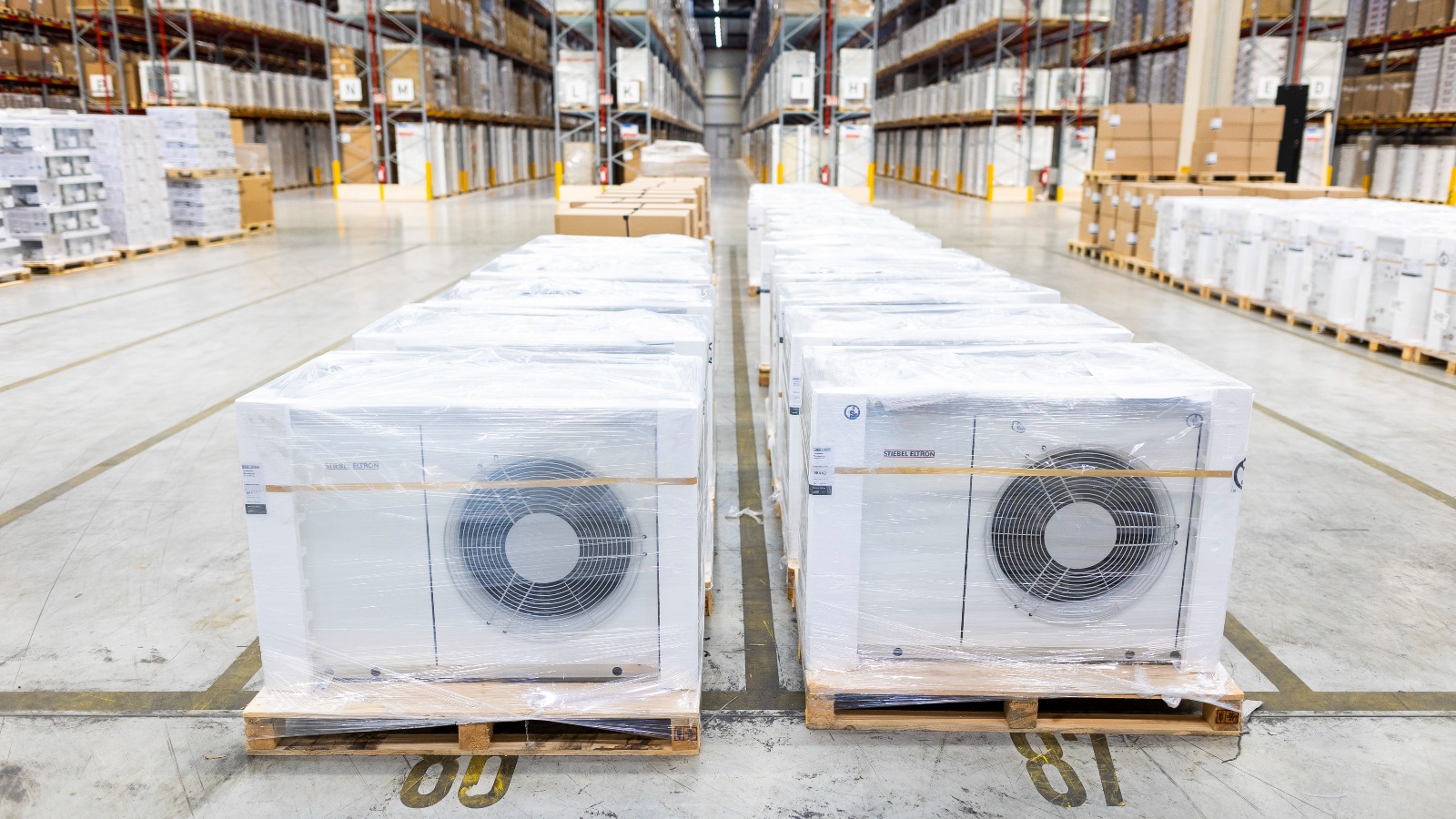Households in the U.S. use 1 billion fossil-fuel-powered machines to heat our homes, cook food, and drive to work. Those residential appliances and vehicles produce 42 percent of the nation’s energy-related emissions. But electric alternatives, like heat pumps and electric vehicles, already exist — and adopting them will help curb emissions, fast. A report released on Tuesday by the nonprofit Rewiring America found that to reach President Joe Biden’s goal of a net-zero emissions economy by 2050, Americans will need to buy 14 million more electric household machines than usual over the next three years.
Cora Wyent, director of research at Rewiring America, said that target is “ambitious, but it’s achievable,” mainly due to clean tech incentives created by the 2022 Inflation Reduction Act and some state policies. The report finds that if there are enough early adopters, market trends will soon take over — eventually resulting in widespread adoption with little to no additional effort.
“The good news about this transition is that we have time. We have decades to do it,” Wyent said. “But what happens in the next few years really dictates when that adoption curve starts to take off.”
The report details growth trajectories for five clean technologies: heat pumps, heat pump water heaters, induction stoves, electric vehicles, and rooftop solar. All are eligible for tax rebates or other incentives under the Inflation Reduction Act.
The report quantifies exactly how many electrical machines Americans will need to purchase above business-as-usual scenarios in order to reach net-zero by 2050. It focuses on the amount of sales needed to achieve “market acceleration” — a critical tipping point where sales will begin to increase sustainably on their own.
Heat pumps, which use electricity for space heating and cooling, are currently used in 16 percent of homes in the U.S.. To get on track for net-zero by 2050, sales will need to outpace business-as-usual projections by a factor of three by 2032. To meet that pace, households will need to purchase 2.38 million more heat pumps than usual over the next three years.
Sales of heat pump water heaters, which are used in only 1 percent of households in the U.S., will need to speed up 10 times over the business-as-usual scenario by 2032. That means 200,000 extra units over the next three years.
Induction stoves run on electricity and use magnetic properties to cook food, resulting in none of the toxic pollution generated by gas and propane stoves. To align with its 2050 climate goal, U.S. households will need to adopt induction stoves five times faster than usual, purchasing an additional 1.76 million induction stoves over the next three years.
Meanwhile, electric vehicles, which today make up only 2 percent of U.S. passenger cars on the road, need to accelerate sales seven times over current projections by 2032. The report sets a national goal of selling 6.7 million extra electric vehicles in the next three years. Rooftop solar sales would also need to speed up by a factor of seven, requiring 2.78 million additional installations in three years.
The report aims to inspire policymakers to start identifying gaps in uptake of these technologies and get working on policies to incentivize adoption.
“This transition is already starting to happen,” Wyent said. One encouraging example is heat pumps, which outpaced gas furnaces in sales in 2022 for the first time. But for that transition to happen equitably, policymakers will need to design laws that ensure lower-income communities and communities of color can access these technologies early — and start reaping the climate and energy efficiency benefits sooner.
“We hope that breaking this down into smaller targets will help cities, states, manufacturers, and everyone else who’s invested in this transition to set near-term goals that will get us on the right trajectory,” Wyent told Grist.



